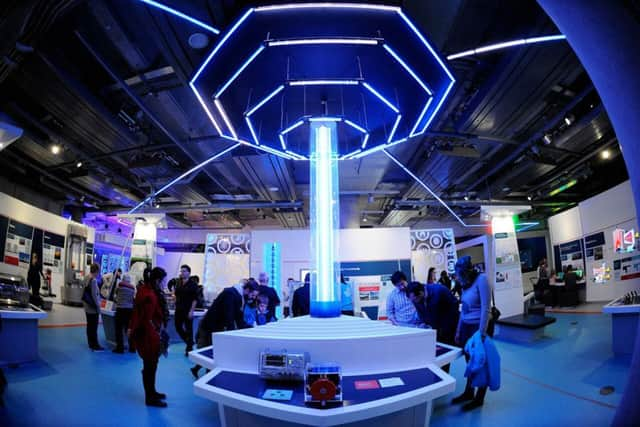Fergus Ewing: We must encourage Scotland's young bright sparks


Scotland has a long and proud history of science and engineering. From the Forth Road Bridge to Dolly the sheep, our achievements in these fields are something we can all be proud of.
Soon Scotland will once again be making science and engineering history by playing host to the world’s largest ever tidal stream project as part of our growing commitment to a greener, more sustainable future.
Advertisement
Hide AdAdvertisement
Hide AdWe expect the first turbines to commence the production of power in 2016. On completion, the tidal energy plant in the North Sea’s Pentland Firth is planned to have the capacity to generate power comparable to a conventional land-based coal, gas or nuclear fired turbine.


Renewables are a huge success story for Scotland.
We now produce the equivalent of half of all the electricity we use from renewables. Tidal energy plants are a further example of one way we can further diversify our energy production in future and lead the world in the development of new, sustainable technology.
There is no doubt that there are many fascinating challenges ahead that are a fantastic opportunity for Scotland’s engineers and scientists of the future to flourish.


How do we use less energy? Make sure people can afford to heat their homes? How do we keep the lights on? Tackle climate change?
Last December, I was fortunate enough to have been asked by the CEO of Glasgow Science Centre, Dr. Stephen Breslin, and his colleagues to open ‘Powering the Future’ - the UK’s most ambitious exhibition ever staged about the future of energy supply. The exhibition aims to turn a spotlight on one of the biggest issues facing not just Scotland but everyone – how we keep the lights on in an affordable and sustainable way.
The role that technology is playing in our lives is becoming more integrated and more essential. From charging smart-phones to keeping the Wi-Fi on, everyday routines now demand that we incorporate energy demanding technology into our lives and never really turn it off.
Glasgow Science Centre’s approach to helping find a way we can meet the future demands for energy has been to explain to visitors where energy comes from, how it’s used, and how much power it takes for even simple tasks like boiling a kettle.
Encouraging young people to take an interest in the future of energy supply lies at the very core of this initiative. Current trends indicate that on average younger people are fairly unlikely to choose subjects and careers in Science, Technology, Maths and Engineering (STEM). This is a trend that we need to reverse, and soon.
Advertisement
Hide AdAdvertisement
Hide AdWe need to radically change the way we produce and use energy to maintain our energy security in a sustainable and affordable way. Furthermore there are numerous opportunities for rewarding, interesting careers in Science, Technology, Maths and Engineering (STEM) that could serve to make a tremendous difference to our future by addressing the challenges we face in maintaining our future energy supply.
We in Scotland are renowned for being a nation of inventors and innovators.
If you look back through history, names like Alexander Graham Bell and James Watt resonate throughout the world.
Whilst it’s important that we recognise and celebrate the achievements of the great Scottish scientists and engineers of the past, it is even more important that we inspire the next generation of young people to become the great scientists and engineers of the future.
Creating opportunities to engage with society as a whole, no matter their age, location, or occupation to raise awareness and understanding of the issues surrounding energy is key to ensuring that we as a society seek to address this fascinating conundrum.
